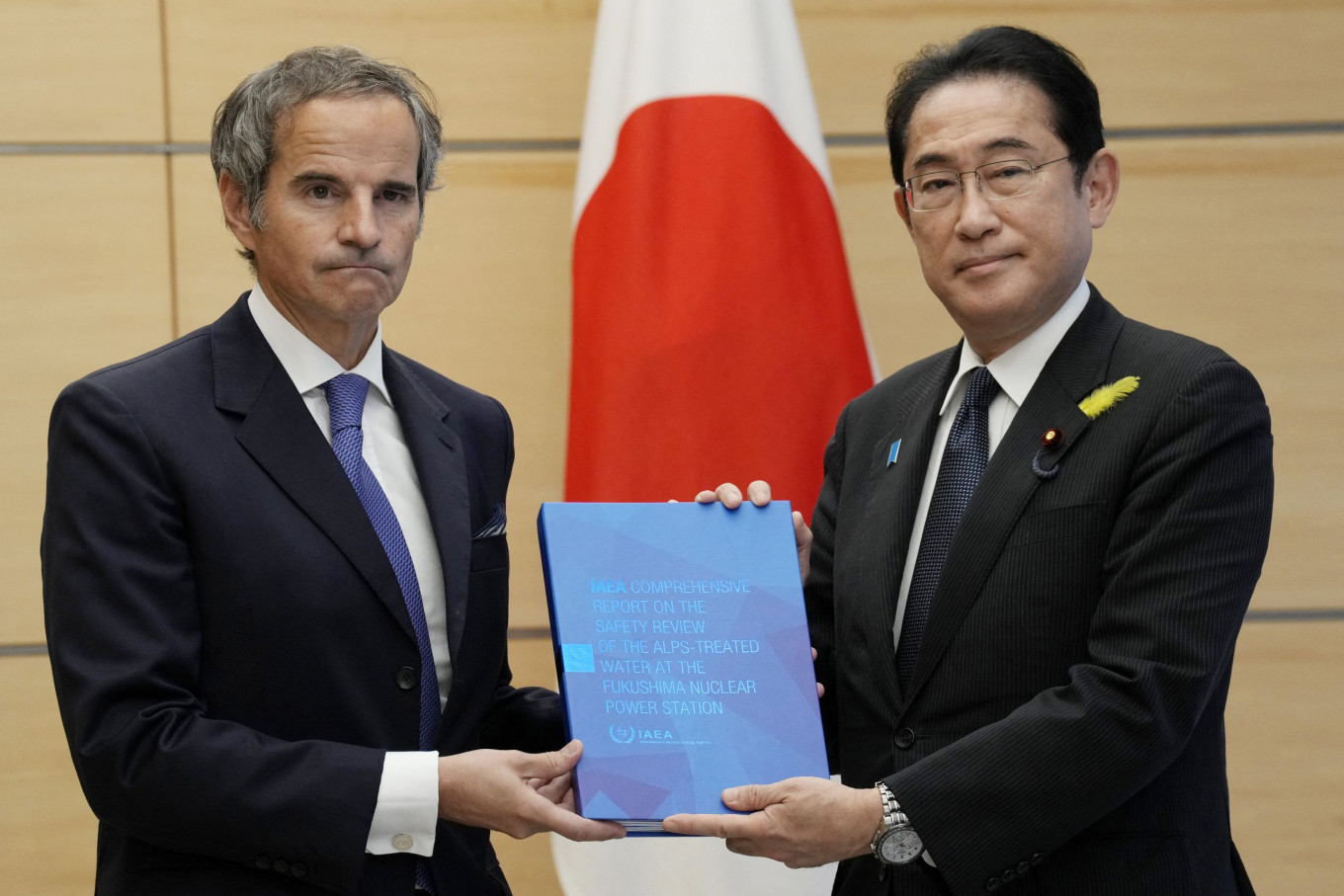Popular Reads
Top Results
Can't find what you're looking for?
View all search resultsPopular Reads
Top Results
Can't find what you're looking for?
View all search resultsIAEA gives Japan stamp of approval for Fukushima water release
Following a two-year review, the International Atomic Energy Agency (IAEA) said Japan’s plans were consistent with international safety standards and that they would have a “negligible radiological impact to people and the environment”.
Change text size
Gift Premium Articles
to Anyone
J
apan won approval on Tuesday from the United Nation’s nuclear watchdog for its plan to release treated radioactive water from the tsunami-wrecked Fukushima plant into the ocean, despite fierce resistance from Beijing and some local opposition.
Following a two-year review, the International Atomic Energy Agency (IAEA) said Japan’s plans were consistent with international safety standards and that they would have a “negligible radiological impact to people and the environment”.
“This is a very special night today,” IAEA chief Rafael Grossi told Prime Minister Fumio Kishida before handing him a thick blue folder containing the final report.
Japan has not specified a date to start the water release, which will take between 30 and 40 years to complete, pending official approval from the national nuclear regulatory body for Tokyo Electric Power (Tepco). The nuclear regulator’s final word could come as early as this week.
Local Japanese fishing unions have opposed the government’s plan conceived in 2021, saying it would undo work to repair their reputations after several countries banned some Japanese food products following the 2011 disaster.
Some neighboring countries have also complained over the years about the threat to the marine environment and public health, with Beijing emerging as the plan’s biggest critic.
“Japan will continue to provide explanations to the Japanese people and to the international community in a sincere manner, based on scientific evidence and with high level of transparency,” Kishida said as he met with Grossi.
Through its embassy in Japan, Beijing on Tuesday said the IAEA’s report could not be a “pass” for the water release and called for the plan’s suspension.
Japan maintains the process is safe, as it has treated the water, enough to fill 500 Olympic-sized swimming pools, which was used to cool the fuel rods of the Fukushima plant after it was damaged by the earthquake and tsunami in 2011.
The water has been filtered to remove most radioactive elements except for tritium, an isotope of hydrogen that is difficult to separate from water. The treated water will be diluted to well below internationally approved levels of tritium before it is released into the Pacific.
In a presentation given to foreign journalists in China last month, Japanese officials said tritium levels in the treated water were lower than those found in wastewater regularly released by nuclear plants around the world, including in China.
The officials said they had made multiple and repeated attempts to explain the science behind Tokyo’s stance to Beijing, but their offers had been ignored.
China on Tuesday said Japan’s comparison of the tritium levels in the treated water and wastewater was “completely confusing concepts and misleading public opinion”.
Grossi will visit the Fukushima plant on Wednesday. After his Japan trip, he will head to South Korea, where consumers have been snapping up sea salt and other items ahead of the water release.
He is also expected to visit New Zealand and the Cook Islands in a bid to ease concerns over the plan, according to media reports.










